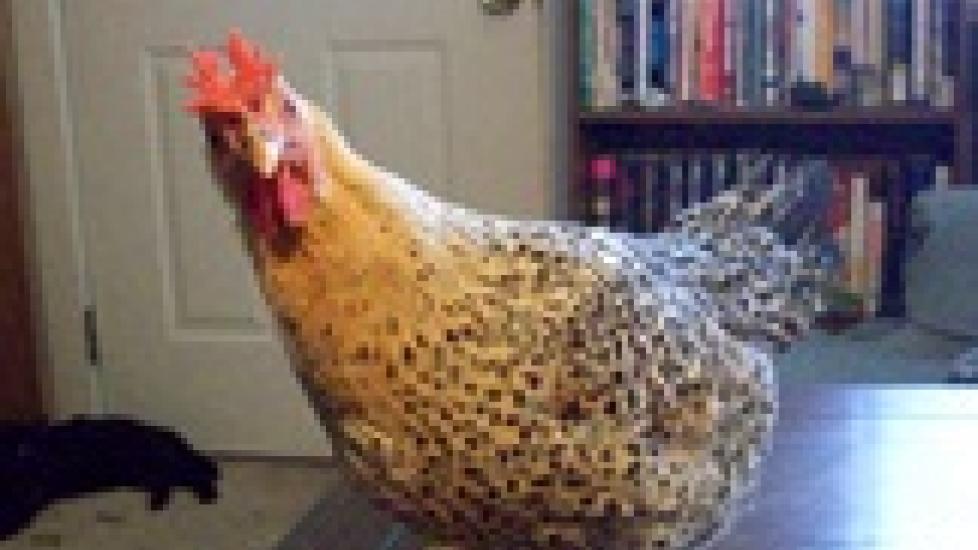'The Doctor Will See Your Chicken Now...'
If trends continue, you may hear your veterinarian’s receptionist utter these words more frequently. The popularity of chickens as pets and family egg producers is increasing in the U.S.
As esteemed members of the family, these modern backyard farm birds are much more likely to see the inside of a veterinary hospital than those raised in earlier times. The most recent edition of the Journal of the American Veterinary Association (JAVMA) verifies the trend of increased chicken veterinary visits.
Avian Veterinarians Seeing More Chickens
Avian or bird veterinarians report that they are treating more chickens in their practices. Cited in the JAVMA article, Dr. Bruce Nixon, president of the Association of Avian Veterinarians is quoted as saying, “Traditionally, we’ve (seen) mostly parrots and pet birds, but it’s just a fact that most of our members have seen a dramatic increase in the number of individual chickens.”
Dr. Tracy Bennett at the Bird & Exotic Clinic of Seattle has experienced this trend in the urban Seattle area.
“I’ve always seen chickens. I’ve been in practice for 19 years, but it’s definitely escalated, maybe in the last five to seven years,” said Dr. Bennett. She describes her clients as pet owners who don’t generally sell their chickens' eggs. She routinely performs surgeries for egg or reproductive issues, and fracture and laceration repair from dog and wildlife attacks. Dr. Bennett observes that “in the old days, if your chicken wasn’t well, you went out back and cut its head off, but these days these are pets to these people, so they want good care for them”.
The American Veterinary Medical Association (AVMA) has recognized treatment of backyard chickens as an underserved area of food animal medicine. Through their website, the AVMA offers resources and resource links or publications to help small animal practitioners become more familiar with treating chickens.
Dr. Ray Cahill’s Seaport Veterinary Hospital in Massachusetts is used to fielding calls from chicken owners about egg issues and injuries. His emphasis is husbandry to minimize health problems. He notes that he doesn't “think most veterinarians are aware of chicken medicine. But veterinarians are ready to respond to what the community needs are.” Dr. Bennett adds that he thinks “it’s important veterinarians learn to treat these guys”.
The Need for Chicken Veterinary Care
A study this year conducted by the U.S. Department of Agriculture was cited in the article. It looked at urban chicken ownership in Denver, Miami, Los Angeles, and New York City. The study found that at least three precent of households with more than one acre of property owned chickens. Los Angeles topped the list with 5.5 percent of households owning chickens.
Some Chicken Owners Are Egg Retailers
Not all of urban/suburban chicken owners view their chickens as just pets or egg producers for the immediately family. Many are urban egg farmers that sell eggs directly to neighbors and the public. Veterinary services are needed to help ensure the safety of these eggs.
By providing strategies for preventing salmonella and other disease contamination and advice on drug withdrawal regulations, veterinarians can help provide a healthier food source. By providing information on breed selection, nutrition, housing, and disease prevention, veterinarians can help maximize egg production and prevent epidemics of fowl diseases that result in quarantines and the slaughter of birds, like the one in Los Angeles in 2002 due to Newcastle disease.
Do you have chickens? Does your vet see chickens?

Dr. Ken Tudor
Image: Alisha Vargas / Flickr
